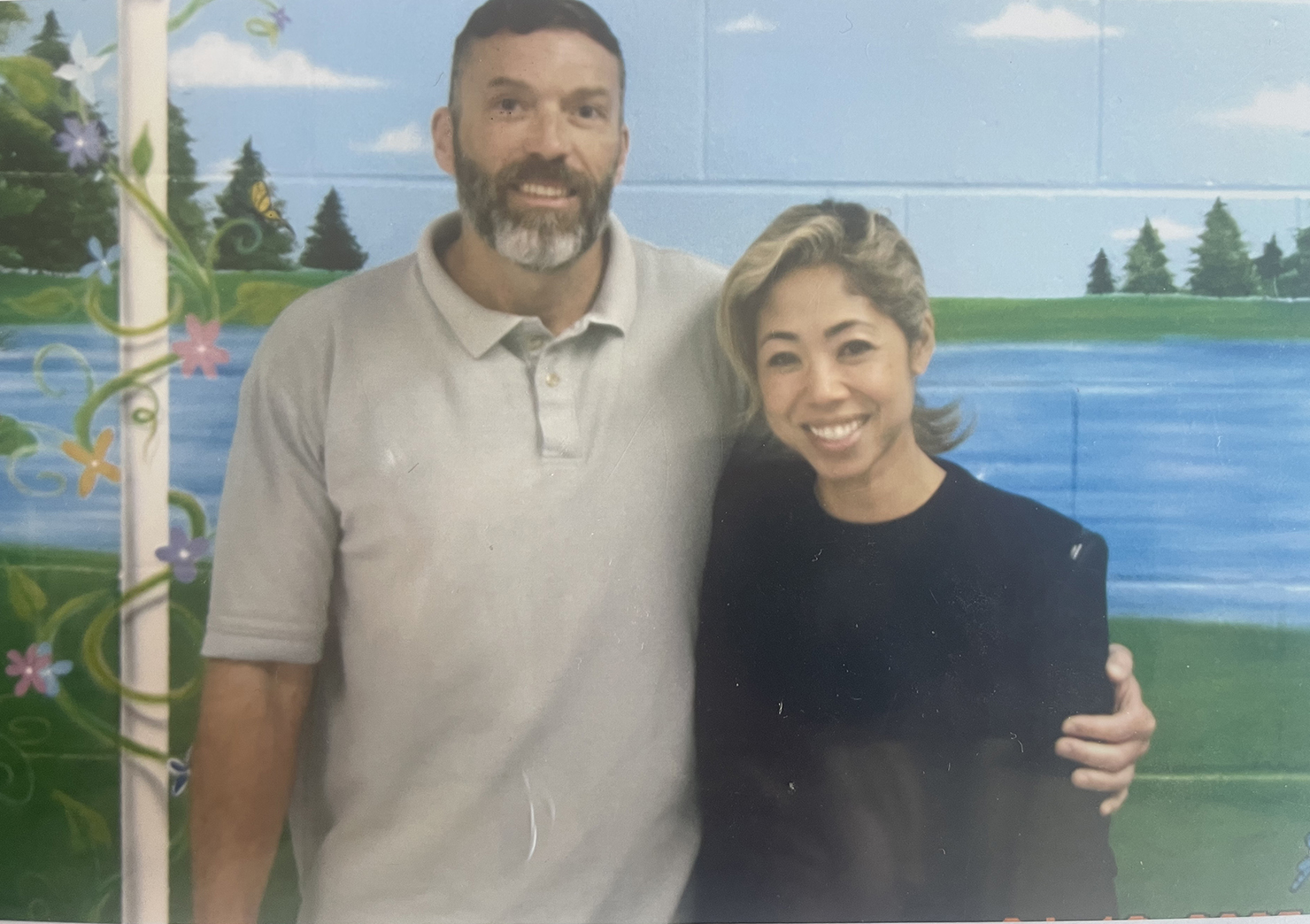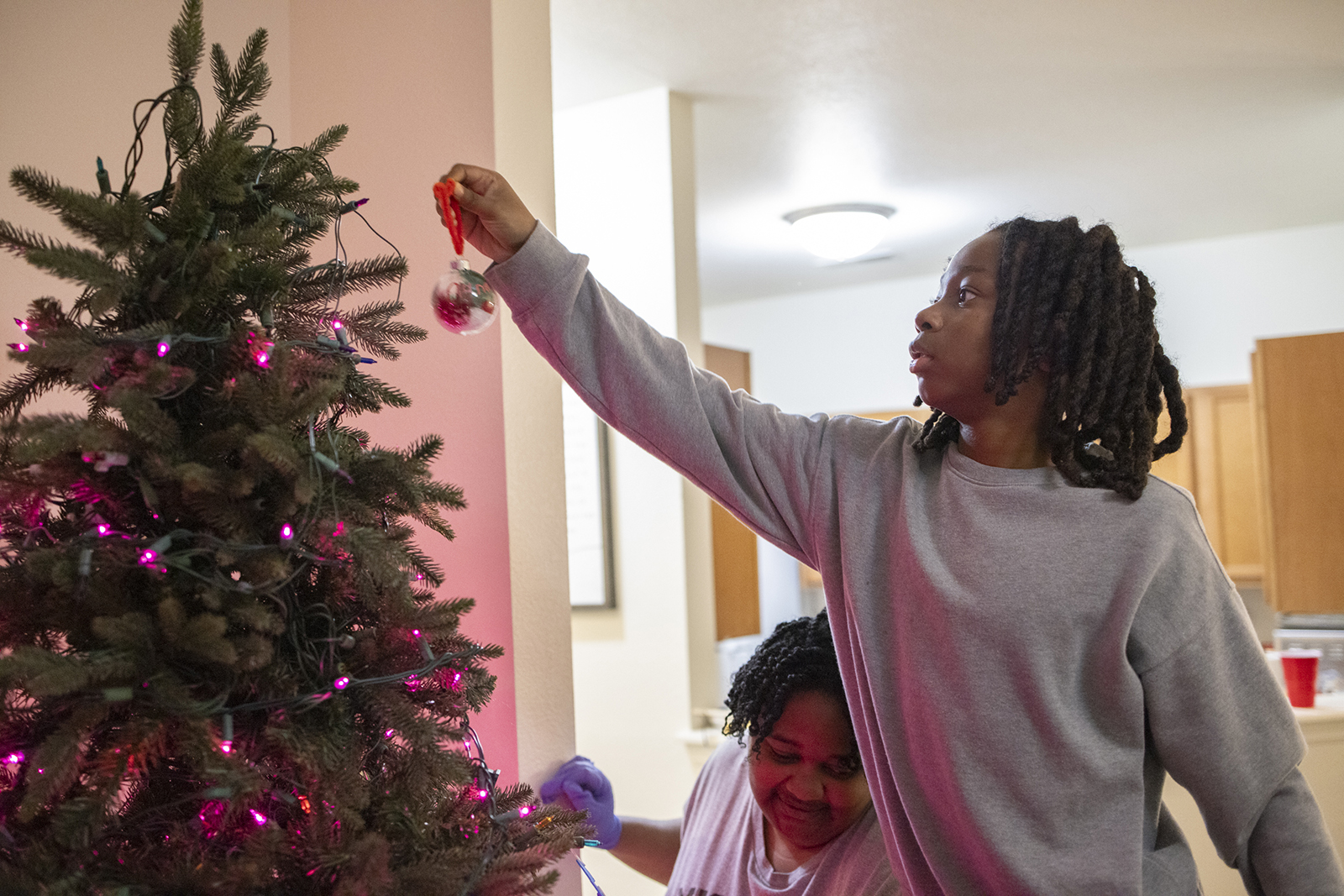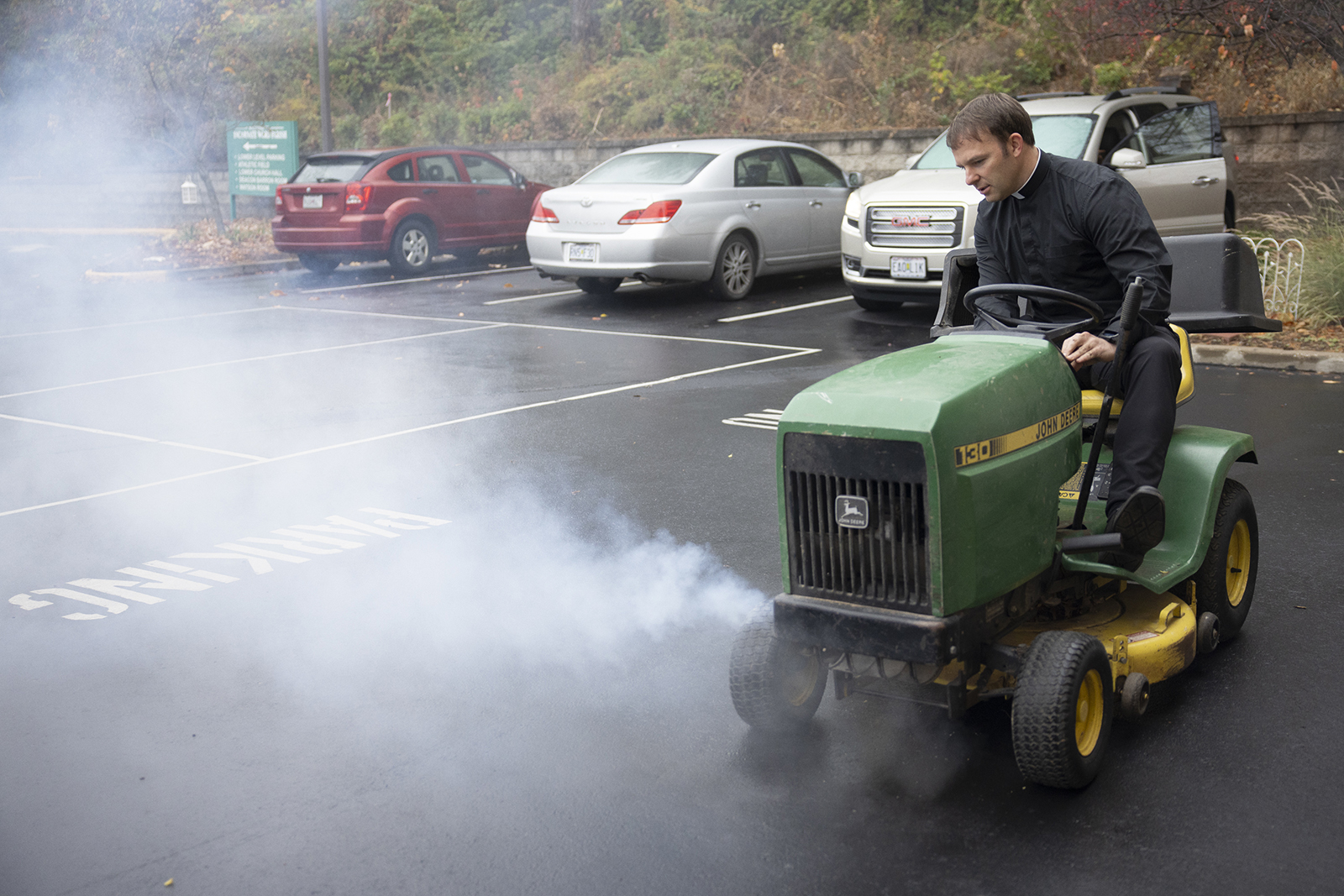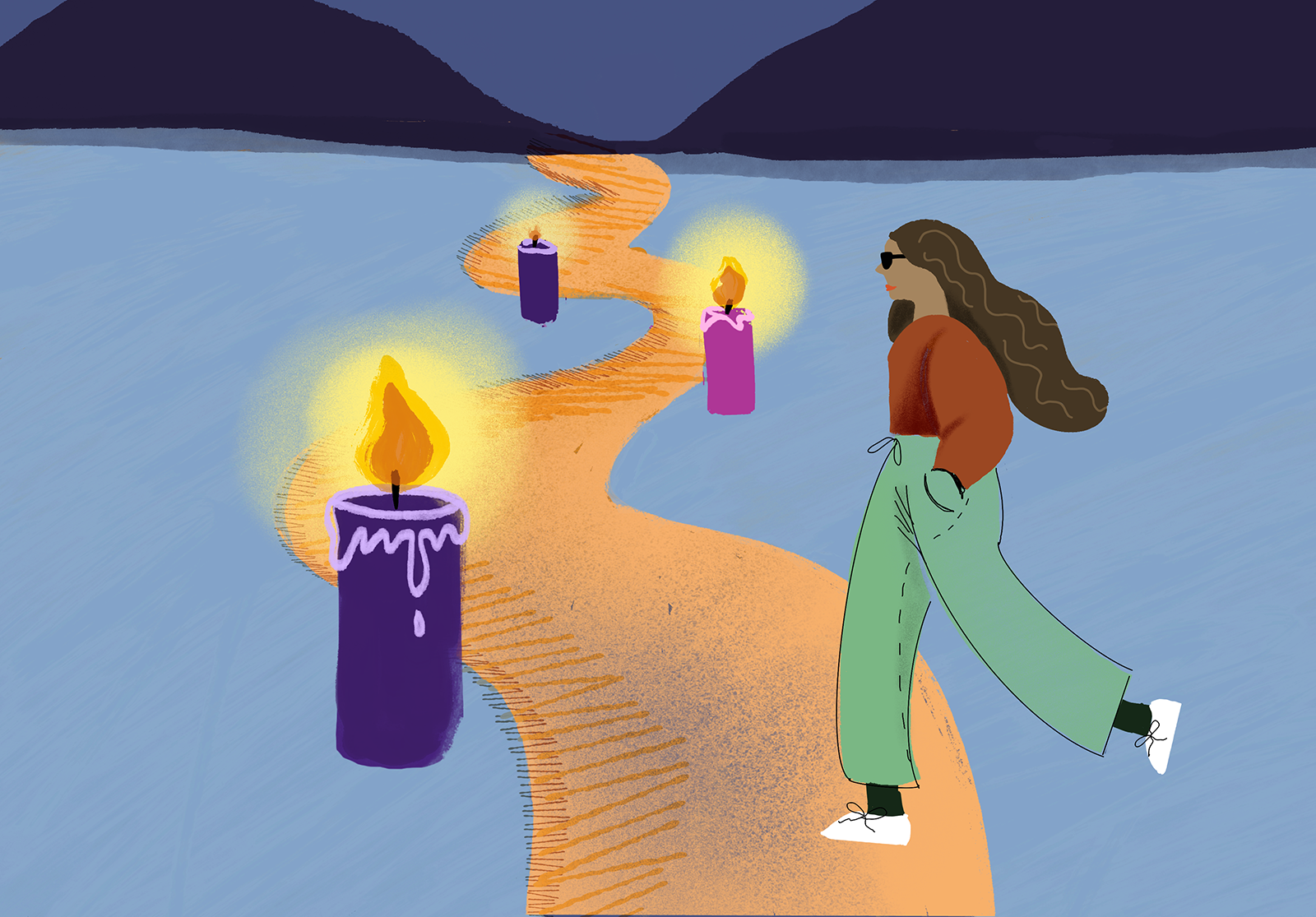Archdiocese launches new program to end the death penalty

Former Missouri public defenders system head Mary Fox leads the Death Penalty Abolition Program
A new program under the archdiocesan Office of Peace and Justice is devoted to ending capital punishment in the state of Missouri.
Mary Fox, a parishioner at Christ the King in University City and former head of the Missouri public defenders system, has taken on a new role as the first coordinator of the archdiocesan Death Penalty Abolition Program. The program will focus on anti-death penalty education and advocacy, especially engaging Catholics at the parish and school levels.
There is much work to be done in simply educating people about the death penalty and the Church’s position on it, Fox said. Several times, she has shared the news of her new position and then heard: “Is the Catholic Church opposed to the death penalty?”
“It’s not well-known … so information is the number one tool that we have in our toolbox to use, getting information out to folks and teaching them what the Catholic Church’s position is,” she said.
In 2018, under Pope Francis, the Catechism of the Catholic Church was amended to state that the death penalty is “inadmissible because it is an attack on the inviolability and dignity of the person” (CCC 2267). Pope Francis was not the first pope to speak out against capital punishment, though. St. John Paul II preached against the practice, including during his 1999 visit to St. Louis at the Trans World Dome; Pope Benedict XVI also called for its abolition.
In 2011, then-Father Robert Prevost — now Pope Leo XIV — wrote a message to Illinois Gov. Pat Quinn thanking him for signing a law ending the death penalty in the state, as reported in a records request by Chicago news outlets WBEZ and the Chicago Sun-Times. “Thank you for your courageous decision in signing into law the elimination of the death penalty. I know it was a difficult decision, but I applaud your vision and your understanding of this very complex matter,” Father Prevost wrote.
Fox said she appreciates “that (the popes) made it clear that this isn’t a question of whether or not this person has done something worthy of the death penalty. That’s not the issue before us. The issue before us is…we do not have the right to take the life of anyone, no matter what they have done.”
Fox started her career as a public defender in 1980, just a few years after the death penalty was reinstated in the United States.
“As a young attorney, I was just given cases where I was told the state would be seeking the execution of my client,” she said. “I think I was too young to understand and too inexperienced to understand that responsibility being put on my shoulders. At one time, when I was pregnant with my first child, I was representing five different people who they were seeking execution against in St. Louis County.”
“I was able to see over the years how we really did not do justice to those people who (the state) was seeking execution against,” she said. “…There is no rhyme or reason as to when (the death penalty) is sought and when it is not sought, and there’s no real control over when a prosecutor may seek it and when they do not seek it.”
She’s spoken to several elementary school classes about the death penalty over the years and found children easily able to grasp the injustice. “It was so obvious to them that it was wrong for us, as the state, to kill people,” she said. “And I think from that point on, I have seen how poorly this country has used the death penalty, and how we need to end it, especially in Missouri.”
There are a few potential paths to ending the death penalty in the state, Fox said at a recent breakfast with archdiocesan and parish leaders involved in the cause. The first is legislation, encouraging the Missouri General Assembly to pass a law outlawing the practice.
Death penalty opponents are also advocating for an end to the “judicial loophole,” which allows a judge to sentence someone to death if the jury cannot come to a unanimous decision. Missouri is one of two states, alongside Indiana, to allow that practice.
Another option to end executions is a governor-imposed moratorium, where the governor orders executions to be suspended even while the practice is still legal, she said. A third option would be an initiative petition brought by the people of Missouri to amend the constitution to outlaw the death penalty.
There are currently five men eligible for execution on Missouri’s death row. The next execution is set for Oct. 14, when Lance Shockley is scheduled to be put to death by lethal injection. Shockley was convicted of the killing of Missouri State Highway Patrol Officer Sgt. Carl Graham Jr. in 2005 and was sentenced to death by a judge after the jury deadlocked.
Shockley has an appeal pending in the Missouri Southern District Court of Appeals asking to delay his execution to allow for DNA testing of evidence, Fox noted. She encouraged Catholics to sign petitions asking Gov. Mike Kehoe to grant him clemency and write letters to state legislators expressing opposition to capital punishment.
“They don’t see this as a concern of their constituents, and the only way they’re going to see it as a concern is if we personally let them know,” she said.
Connection with Missouri inmate deepens resolve for national anti-death penalty advocate
BY LAURA KOSTA | laurakosta@archstl.org
Emmjolee Mendoza Waters has spent her career working in Church ministry and social justice education and advocacy. Now the director of death penalty abolition at Catholic Mobilizing Network, she’s had the chance to visit many people in prisons around the U.S. and internationally.
And during an April visit to Missouri, she took the opportunity to visit a person on death row for the first time.
Waters accompanied attorney Larry Komp to visit Lance Shockley at Potosi Correctional Center. Since Shockley’s execution date was not yet set, they were allowed to sit across from him at a table in a visiting room and speak face-to-face without a barrier.
The visit “was a really sacred and holy moment,” Waters said. “And at the same time, it was like a simple and very natural conversation you’d have with a friend…We talked about things that make us human. We talked about our families, our friends, what we’re reading, our faith.”
Shockley brought a stack of photos to share, telling her all about his daughters, relatives and friends. She was struck by how many people, including old high school friends, had continued to visit him over the years.
She learned that Shockley had become a faith leader at the Potosi prison over the past 16 years, participating in and later volunteering for the service team on a Kairos retreat, leading Bible studies, and serving the inmates as the designated Christian representative for the group Christians at Potosi and president of the Restorative Justice Organization at the prison.
“I’m a lifelong Catholic. I’ve spent my whole career working in the Church, and his ability to articulate and express himself in his depth of faith, I think it challenged me, because there was such a conviction there,” Waters said.
Shockley was “such a joy to be with,” she said, and she feels privileged to have had the chance to meet him in person. “I feel a little bit sad that some may never meet him. But I also feel a little hopeful and peaceful knowing that his presence on the inside is having such an impact on others.”
Her visit with Shockley has continued to influence her work in the months following. Since starting with Catholic Mobilizing Network in 2023, there have been more than 60 executions across the country, and she learns the stories of each person put to death as she leads advocacy efforts for clemency.
“But Lance was the first person I met face-to-face on death row, and when I met him, he didn’t have an execution date, so in some ways, I naively think I felt like he was safe,” she said. “…So I think my work just feels like there’s a greater sense of urgency. I feel compelled to keep trying, to keep going.”
She keeps a photo of herself with Lance and a note he wrote during their visit on her desk, a personal reminder of what is at stake in this work.
“My heart hurts more so than it did before, and meeting him made my work more personal,” she said. “It deepened both the hope and the sorrow that I carry into this work.”
Former Missouri public defenders system head Mary Fox leads the Death Penalty Abolition Program
Subscribe to Read All St. Louis Review Stories
All readers receive 5 stories to read free per month. After that, readers will need to be logged in.
If you are currently receive the St. Louis Review at your home or office, please send your name and address (and subscriber id if you know it) to subscriptions@stlouisreview.com to get your login information.
If you are not currently a subscriber to the St. Louis Review, please contact subscriptions@stlouisreview.com for information on how to subscribe.






